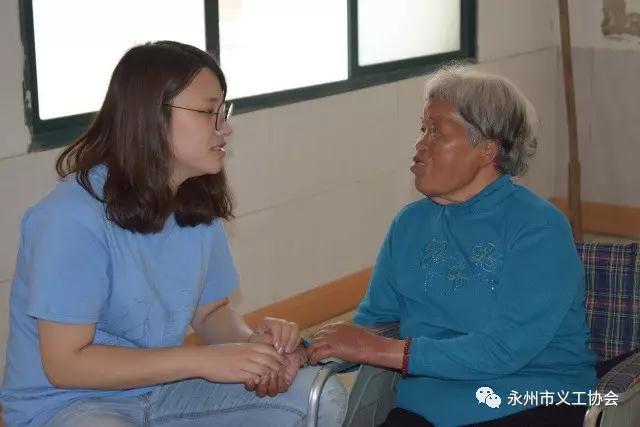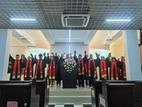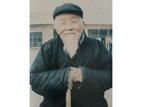For a long time, in the eyes of traditional Chinese churches affected by fundamentalism and conservatism, the church's main responsibilities are to preach the gospel, save souls, nurture congregations, and reach out.
Most activities are inside the church, seldom occurring outside the four walls. "Should the church enter into society? How to step into society? Is that Christians have to stay in the church pious?" These are the problems today's churches face.
May 12, 2008, is an unforgettable day for Chinese people, leaving an indelible wound on their souls. But the 2008 Sichuan Earthquake that killed at least 300, 000 people awakened many Chinese churches to the involvement in social service - the house church spontaneously started the China Christian's Action Love initiative. "On May 17, we set up China Christian's Action Love Volunteer Association and its office in Chengdu. We contacted about 300 Chinese churches. More than 3,000 believers across China entered into the disaster area. They were actively engaged in disaster relief, becoming the largest relief organization in the afflicted area." Said one of the initiators from a house church in central China.
Since then, the Chinese church began to pay attention to social service. Various kinds of churches embarked on social work.
One of the testimonies is the service to leprosy survivors. According to historical records, leprosy has more than 2,000 years of history in China. Due to limited medical options, a large number of leprosy victims were collectively sent to the mountains or islands in order to limit their contact with the outside world, assuming food shortages and isolation from society would lead to a natural dying off of those with the disease.
It was said that Beihai prefecture in Guangxi was an area with high-incidence leprosy. In 1981, Simon Church was built by foreign missionaries inside a local leprosarium to serve the special group. In September 2012, a local water project was launched with the financial assistance of Shanghai Community Fellowship that also funded the reconstruction of Simon Church. In 2000, the prefecture's government converted a leprosy hospital into a sanatorium where over 140 homeless leprosy survivors were settled. Now there are more than 100 leprosy victims in the place, eighty of whom are Christians. On Wednesdays, they hold a gathering in which a church teacher interprets the Bible and teaches them to sing hymns.
Preacher He Jun from Simon Church said that he was really terrified at the first sight of leprosy survivors and even kept away from them. Later after prayer, he gradually accepted them and talked with them. Now he can shake hands with them.For years, the church's members have been actively concerned with local lepers both physically and mentally so that they can recover from the shadow of prejudice and no longer have fears.
It is said that there are 600 leprosy rehabilitation centers and 250,000 leprosy survivors in China, who are served by unknown volunteers and organizations.
In recent years, the government begins to encourage religious charities. In Feb 2012, the CPC's six administrations, including the State Administration for Religious Affairs(SARA), jointly released "Opinions on Encouraging and Regulating Religious Circles' Participation in Public Welfare Charitable Activities". The document said that religious groups, premises, and figures from the religious circles could "donate money and goods for public charity undertakings and establish public charitable programs and organizations" that would enjoy favorable policies and subsidies.
In September 2012, SARA launched the first nationwide week of religious charity in China. Many registered churches responded to the initiatives. Published by the State Council Information Office last April, the white paper "China's Policies and Practices on Protecting Freedom of Religious Belief" claimed, "(The religious groups are) actively engaging in public charity activities. Since 2012... religious groups have carried out an annual 'Religious Charity Week'; with total donations exceeding one billion yuan."
It also declared that the religious community carried out charity in different ways, such as holding prayer services following the Wenchuan earthquake and other major disasters and incidents, utilizing available resources to help the Sandu Shui Autonomous County, Guizhou Province to eliminate poverty, establishing nursing homes for the elderly and rehabilitation centers for the disabled. "According to preliminary statistics, religious groups have established more than 400 nursing homes offering approximately 29,000 beds."
Aside from serving leprosy victims, the Chinese Christians are called to start different kinds of social service ministries, such as gospel-centered addiction treatment, prison fellowship, helping the elderly and disabled, disaster relief, adopting homeless children, and volunteer teaching.
Many TSPM churches have initiated small campaigns, like providing free clinics by medical teams, organizing co-workers and believers to visit sanitation workers, migrant workers, and poor families, blood drives as well as clothes and money donations.
More and more regional CCC&TSPMs, churches, and individual Christians have set about founding social work institutions. For example, the Shanghai CCC&TSPM set up the Shanghai Agape Foundation in Feb 2015; in Jan 2018, a legal Christian fund was established by the Luzhou TSPM and the Amity Foundation, China's largest Christianity-based foundation, to promote the local development of church social service, like programs for the construction of social service capacity, poverty alleviation, financial education assistance, disaster prevention and rescue, and healthcare; another Christian fund was registered by the Amity Foundation and the Changzhou CCC&TSPM of Jiangsu in April 2018; Dongying Dorcas Volunteer of Shandong was founded as a social service organization in August 2016 and the Bethesda Volunteer Service Center of Cangnan, Wenzhou, was approved in Jan 2017. What's more, three-self churches or individual Christians have built legal nursing homes and even hospitals.
Even so, many traditional churches still take no account of social work. One of the causes is that a lack of cognition of the meaning of social service and its relation to the church's mission.
Li Daonan, a contributor of the Christian Times, an online Christian news website in China, argued that although the church often talked about love, it was trapped in a narrow space inside the church and religious asceticism, regarding the Old Testament as the highest standard. These Christians thought if they attended church and gave tithes on time and obeyed church leaders as religious followers, they believed that they had been saved.
But Jesus told the rich young man in the Bible: it was not enough to keep the commandments and he needed to help the poor around him. Similarly, Jesus would tell us that we need to help people around us.
In addition, this kind of Christians rejected other religion in two aspects: first, they refused to volunteer to other non-Christian religious adherents; second, they didn't participate in non-Christian religious charitable organizations, holding that being a member of the organizations didn't comply with Jesus' teaching.
Next, the church should transcend utilitarianism. The utilitarian mentality was that Christian volunteers gave bread to people as long as they wanted to believe in Jesus. It was like dealing with God: one new convert could make them receive more grace from God. However, Jesus claimed that they made a single convert a son of hell.
The China Christian's Action Love initiative was dismissed. A pastor said, "Personally speaking, it is hard to do charity work in China. My greatest experience is that whatever we do, we will be never reported and recognized by society."
It was hard to get a legal status and government support, especially for house churches, so it was difficult to launch a personal fundraising campaign. Moreover, they hardly won social approval. "According to the government statistics, 1.06 million volunteers came to the affected area in the year when the Wenchuan Earthquake occurred, so the year of 2008 was called the first year of volunteers. 60% of the volunteers were church members and Christians, but they were not covered on any newspaper and recognized."
Besides, it was hard to unite all the churches. "The churches are scattered. There are urban churches, rural churches, three-self churches and others from different backgrounds and denominations. They are hard to be interiorly integrated. This is also our situation and not easy."
Rev. Zhou Lianfu, vice-president of the Chongqing CCC, shared the status quo of the Christian social service sector in the first Cross-strait Christian Social Service Forum: there were large social demands, but the church's social service had extremely limited scale and deeds.
First of all, the church had limited involvement in social service. Compared with professional organizations, social service activities organized by the local CCC&TSPMs and churches were a smaller amount and short-term.
Next, poor influence. Restricted in many areas, church social service work was seldom reported publicly, leading to the social unawareness of what the church did. Some non-believers even treated the church as an organization that received donations but lacked actual care to society.
Third, unbalanced development in churches in different places. Rev. Zhou said due to geographical, political, and social factors, the church in coastal cities was able to provide relatively large diversified social service ministries, but a large percentage of the one in the mainland was at a halt.
Fourth, old management modes. To some extent, this resulted in the slow growth of church social service undertakings.
Another problem was that Chinese Christian charitable organizations and social service institutions had limited expertise and social influence. Most efforts were small-scale, under-resourced, and unprofessional.













